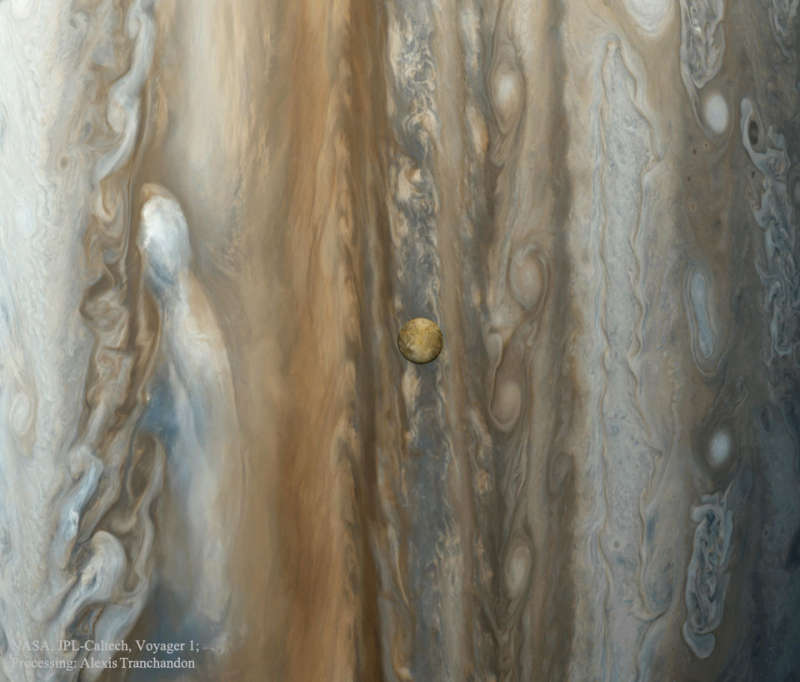
|
Credit & Copyright: Alexis Tranchandon,
Solaris
Explanation:
Back in 1979, NASA's Voyager 1 spacecraft flew past Jupiter and its moons.
The images in this mosaic, featuring the moon Io against a background of gas giant
Jupiter's
diffuse swirling cloud bands,
were recorded by Voyager's camera from a distance of about 8.3 million kilometers.
The
Io image from this mosaic may be the first to show curious round features on
Io's surface
with dark centers and bright rims more than 60 kilometers across.
Now known to be volcanic in origin,
these features were then thought likely to be impact craters,
commonly seen on rocky bodies
throughout the Solar System.
But as
Voyager
continued to approach Io, close-up pictures revealed a bizarre world devoid of impact
craters, frequently resurfaced by volcanic activity.
Earlier this year a new robotic spacecraft,
NASA's Juno, began to orbit Jupiter and last week
made
a pass within 5,000 kilometers of Jupiter's clouds.
During the next two years, it is hoped that
Juno will discover new things about Jupiter, for example
what's
in Jupiter's core.
Free Download:
APOD 2017 Calendar: NASA Images
|
January February March April May June July August September October November December |
| ||||||||||||||||||||||||||||||||||||||||||||||||
NASA Web Site Statements, Warnings, and Disclaimers
NASA Official: Jay Norris. Specific rights apply.
A service of: LHEA at NASA / GSFC
& Michigan Tech. U.
Based on Astronomy Picture
Of the Day
Publications with keywords: Io - Jupiter - Voyager 1
Publications with words: Io - Jupiter - Voyager 1
See also:
- APOD: 2026 January 20 Á Io in True Color
- APOD: 2026 January 18 Á Jupiter from the Webb Space Telescope
- APOD: 2026 January 6 Á Jupiters Clouds in High Definition from Juno
- APOD: 2025 November 11 Á Jupiter in Ultraviolet from Hubble
- APOD: 2025 December 14 Á Juno Flyby of Ganymede and Jupiter
- APOD: 2025 May 25 Á Beneath Jupiter
- Painting with Jupiter
